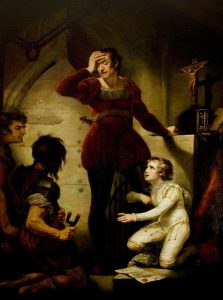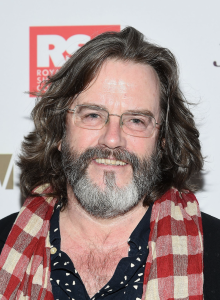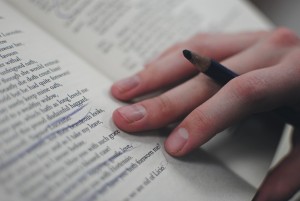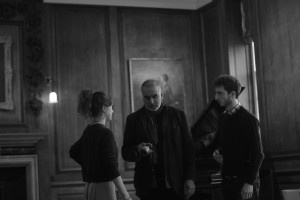The Comedy of Successes
by Susie Weidmann | October 22, 2024
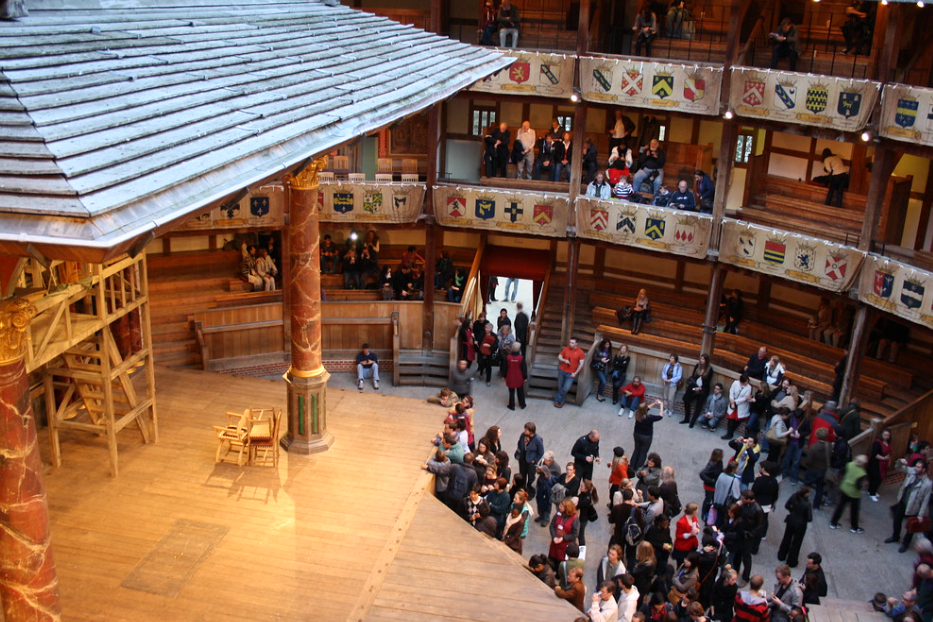
I first encountered The Comedy of Errors on a Shakespeare reading list, the only play successfully crammed into the last week of my Hilary vacation. At the time, my only takeaway was the ability to claim having ‘made a start’ on my reading without brazenly lying to my tutor. Seeing it in performance at Shakespeare’s Globe, however, felt like an admonishment from the bard himself: a play I had previously dismissed as hackneyed and unoriginal sparkled with life. My complimentary cushion was also a factor in my newfound optimism.
This was only my second time entering Shakespeare’s Globe, but this time I was thankfully observing the action from the stalls, tucked away from the typically wet London weather. The ambience, aided by the on-stage musicians, was relaxed and eager. The set instantly plunged its audience into Ephesus, Shakespeare’s fanciful land entrenched in a territorial feud with Syracuse. Speared and rusted helmets, ropes, barrels, a mast protruding from the stalls: the sensations of embarking on an adventurous voyage and a fearful escape jostled for jurisdiction, and the play teetered on this brink throughout its 90-minute duration. The sinister opening chant of ‘Ephesus’ immediately makes way for an overly camp fight scene in which a clergyman holds up a cross only to reveal a concealed dagger. The tense scene in which Antipholus of Ephesus is pronounced mad is made overtly (and somewhat incongruously) sexual by the eccentric doctor’s revealing costume design. The band, stationed in a balcony gasp and exclaim in moments of tension as if witnessing the story for the first time themselves. It is farcical theatre at its finest, and unashamed of it. While Shakespeare is now often judged according to its interpretive novelty, this production stayed largely safe but did it well.
The play is predicated upon two sets of twins. The princes, inexplicably both called Antipholus, and their attendants, both called Dromio. The bard must have confused himself at times in the writing of this comedy. Antipholus of Syracuse, along with Dromio of Syracuse, goes in search of his estranged brother after the two sons and their attendant twins are separated at sea by a ferocious storm. After being tied to the masts by their parents, the boat cracks in two, and with it, so does their family. The presence of two identical royal princes in Ephesus inadvertently causes carnage. Mistaken encounter after inevitable mistaken encounter leads to a false arrest, misguided romantic endeavours, and eventually a comical reconciliation for the brothers, their attendants, and the royal parents.
The only potential tension in a production hell bent on playing for every laugh comes at the beginning, when their father Egeon is facing execution for trespassing into Ephesian lands. The former execution, however, was stripped of any real foreboding when the executioner has to take a couple of extra swings to fulfil his task. This is a production which favours comedy from the start. The constant gags and the somewhat repetitive plot I encountered in my pre-reading last year may have worn thin but were relieved of all monotony by some truly sparkling performances.
The acting was, across the board, exceptional. Gabrielle Brooks shone as the scorned Adriana, perfectly blending comedic excess and genuine paranoia, a performance wonderfully complimented by the spot-on sibling chemistry with Shalisha James-Davis. Christopher Logan made good on the old adage that sometimes the smallest roles steal the show—the audience was, for a time, more invested in Angelo the goldsmith’s reunion with his expensive golden chain than the familial reunion awaiting us at the play’s end. Sean Holmes and Naeem Hayat, co-directors, have ensured this as a production in which no-one goes amiss. Danielle Phillips was remarkably memorable as she multi-rolled various different cameo parts, equipped with the effective but simple choices of a hilariously drawn-out manner of speech and a constantly puffed-out chest as she strode, hands behind her back and chin determinedly up, across the stage.
As invariably unlikely as it is to recruit two sets of actual identical twins, the likeness was made up by the costume department. The costumes were fittingly camp, too: the two Dromio’s were reminiscent of Peter Pan multiplied, donning the same green wool button-ups, tights, and hats, and invested with the same mischievous energy. Both actors used their real accents too, in order to help differentiate between them. The two Antipholus’ similarly donned the same red cape and black tights as a marker of their textual physical likeness.
Paul Rider and Anita Reynolds, as the separated parents of the princes, were tasked with the rambling monologues that open and close the issues within the play. I know firsthand that making Shakespearean exposition interesting is hard. However, I still felt Rider lacked the conviction that is necessary for any first scene. While his lack of energy was saved by the preceding fight sequence, I still found myself thinking that the spontaneous shower of rain charitably provided by a typically cloudy afternoon in London lent his woeful tale of stormy sorrow far more emphasis than his acting did. His would-be sweet reunion with Reynolds in Act five was also unconvincing and lacking real emotion or reaction when she revealed herself as his long-lost wife, or indeed when he recognised his two children together at last. A sense of awkward stiltedness somewhat imbued the whole reconciliation scene.
The play was far more confident in its approach to rambunctious comedy than naturalistic poignancy, which a family reunion inevitably requires even in a comedy, and it felt as if the two Antipholus’s’ themselves, when faced with each other, were almost unaware of how to adapt to the multifaceted nature of the play’s genre. The production, true to form, chose to make the moment of realisation another comedic gag, as the whole company looked around and let out a collective ‘Ohhhhh!’ In fairness, this very much suited the overall directorial vision, but I felt it made for a rather anticlimactic end that could have been saved by allowing a moment of natural tenderness to emerge. The overwhelming likeability of this production and its characters, however, more than made up for it. When the two Dromio’s walked off, arm in arm, the whole audience couldn’t resist letting out a loud cartoonish ‘Awwww’ which felt like a fitting way to sum up a hugely enjoyable afternoon. ∎
Words by Susie Weidmann. Image Courtesy of Andrew Wilkinson via Flickr.
